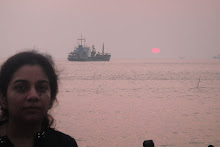Title :
Being Mortal
Author :
Atul Rawande
Publisher
: Penguin Books Ltd.
'Doctors
are trained to keep their patients alive as long as possible. But they are
never taught how to prepare people to die. And yet for many patients,
particularly the old and terminally ill, death is a question of when, not it.'
While one
cannot underestimate the boons of medical science in a human's life, the other
side of it cannot be ignored altogether. Thanks to research and advancements,
we are able to witness a polio free world, reduced rates of child mortality,
lesser complications in child birth, cures of diseases which were earlier fatal
- to just name a few. However, we cannot completely overlook the fact that
medicine has made dying really complicated and difficult.
And this
is what Dr. Atul Rawande talks about in his book - Being Mortal.
Modern
healthcare has increased the life span of average human beings from 60s and 70s
to 80s and 90s. While medical science has done wonders in prolonging the life
of the physical body but ageing of the body is beyond any science and as a
result more and more elderly people end up in a phase where their frail bodies
and other faculties need assistance.
Atul Gawande has rightly pointed out, 'In the past few decades, medical science has rendered obsolete centuries of experience, tradition and language about our mortality and created a new difficulty for mankind : how to die.'
It makes the readers introspect and many
questions start clouding the mind - what is the right time to let go, when
should medicinal intervention back off and let the person exit gracefully,
respectfully and peacefully; what percentage of quality of life can be
compromised for the quality or vice versa; where should one go when a patient
is beyond any medicine or doctor; how does one wait for the final time knowing
that it is approaching fast; where is the support for the affected and the
family and many more. There is a high probability that each one of us will have
to confront these questions in one's lifetime either for oneself or for some
loved one.
Atul Gawande talks
about nursing homes and other facilities in US which help an individual
continue to have normal life as far as possible. Later he also talks about how
one can die peacefully and gracefully and the organisations that are working to
make it happen. People are recongnising the need of setups like Hospice care
and other residential facilities which can spare a person from piercing needles
and confined-to-bed state.
Towards
the end he shares his own father's last stage of life from a tumour of the
spine. He shares his emotions as a shocked and concerned son and as an informed
surgeon but eventually her knows, he needs to pose the right question to his
father in order to choose the right course moving forward.




.png)








